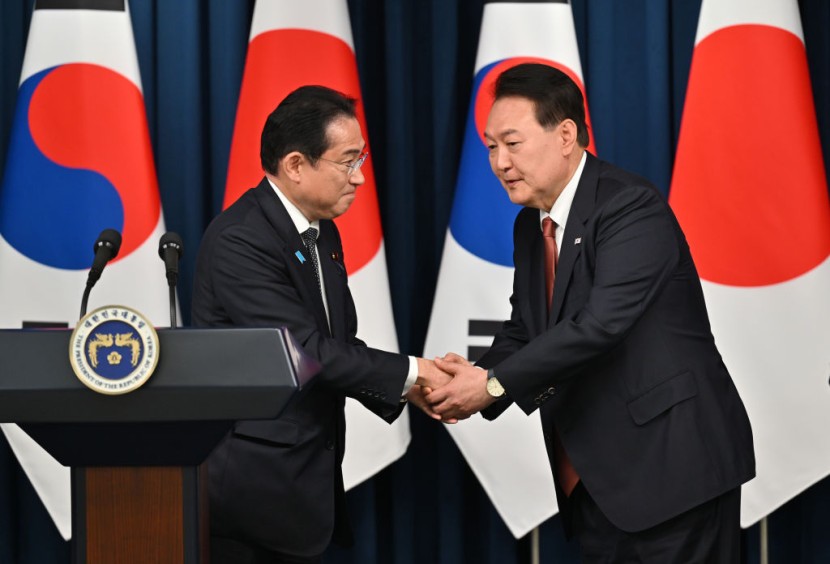
- Japanese Prime Minister Fumio Kishida visits Seoul to conduct bilateral talks with South Korea
- The visit comes amid the growing North Korea threat related to nuclear weapons testing
- The meeting comes after a 12-year hiatus of the two Asian leaders visiting each other's country
Japanese Prime Minister Fumio Kishida visited South Korea to bolster relations between the two countries amid the growing North Korea threat.
The visit comes after a 12-year hiatus since the two Asian leaders have visited each other's country. The discussions, which focus on bilateral talks in two months, have broken the stalemate as Tokyo and Seoul try to address relations.
Japan, South Korea Bolster International Relations
On Sunday, Kishida met with South Korean President Yoon Suk Yeol in Seoul, responding to the latter's visit to Tokyo last March. The two visits suggest the revival of the two nations' "shuttle diplomacy" to hold negotiations and address various issues that have complicated their relations, as per the Washington Post.
Seoul and Tokyo have spent years experiencing friction in international ties, and now the two countries are trying to work more closely with each other and the United States. They aim to counter the looming geopolitical threats of China's economic and military rise and North Korea's nuclear objectives.
In his opening remarks, Yoon said that the currents of good change are challenging to create initially. However, he said that they often become the new trend once they are there. The South Korean president said that the relations between Seoul and Tokyo were now at that point.
The South Korean president has been actively pursuing rapprochement with Japan as a crucial part of his foreign policy agenda. In March, he made a landmark proposal to resolve a major obstacle related to wartime labor compensation issues that hounded their diplomacy.
Before Kishida arrived in Seoul, many South Korean residents were wary of how the Japanese prime minister would address Tokyo's brutal colonial rule of the Korean Peninsula in the early 20th century, according to the New York Times.
Read Also: UN Nuclear Watchdog Warns of 'Very Real' Dangers at Ukraine's Largest Power Plant
Addressing The North Korea Threat
The Japanese prime minister said that he stood by previous statements made by some of his predecessors where they expressed remorse and apologies. However, that was as far as he approached the issue and merely said that his "heart ached" at the thought of Koreans suffering.
Despite falling short of what many South Korean residents and lawmakers wanted, Yoon said that he would not dwell on seeking an apology from his Japanese counterpart. He argued that it was not something that they could unilaterally demand, adding that it is something that Tokyo should naturally express.
Furthermore, a senior official from Yoon's office said that the Japanese prime minister's remarks were not pre-arranged. The South Korean president thanked Kishida for "showing his sincere position even though there was no such request."
The two Asian leaders' pledge to bolster regional cooperation was a welcome incident for the United States government. Yoon added that the two countries working together would benefit not only the common intSeoul and Tokyo's common interests but alsond prosperity, said Reuters.
Related Article: Arab League Readmits Syria After 12-Year Suspension








